
This is the second installment of the “Some of My Favorite Music” series. This time, I’ll be focusing on the 1950s. It was a great decade for music, dominated by doo-wop, country and western, rockabilly, blues, swing, pop, rhythm and blues, and the adolescence of the emerging rock and roll scene that was born in the late 1940s.
Since the last post in this series ended up being something of a list in paragraph form, and the length is even greater this time around, I’m going to make the body of this one a straight up list with the occasional and (hopefully) interesting anecdote.
Patti Page, songs: “Tennessee Waltz” (1950,) “Would I Love You,” “Mockin’ Bird Hill” and “Mister and Mississippi” (1951,) “I Went to Your Wedding,” “You Belong to Me,” “Come What May” and “Once in a While” (1952,) “How Much is That Doggie in the Window” and “Changing Partners” (1953,) “Cross Over the Bridge” (1954,) “Allegheny Moon” (1956) and “Old Cape Cod” (1957.)
- Page was the top-charting female vocalist and top-selling female artist of the 1950s.
- In a six-decade career, she sold over 100 million records.
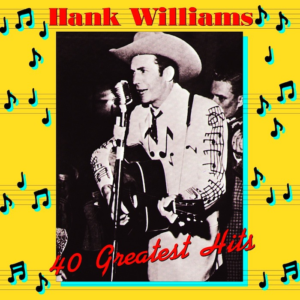 Hank Williams, songs: “I Just Don’t Like This Kind of Living,” Long Gone Lonesome Blues,” “Why Don’t You Love Me,” “They’ll Never Take Her Love From Me,” and “Moanin’ The Blues,” (1950,) “Cold, Cold Heart,” “Howlin’ at the Moon,” “I Can’t Help It (If I’m Still in Love with You,” “Hey Good Lookin’,” “Crazy Heart” and “Baby, We’re Really in Love” (1951,) “Honky Tonk Blues,” “Half as Much,” Jambalaya (On the Bayou)” “Settin’ the Woods on Fire” and “I’ll Never Get Out of This World Alive” (1952,) and posthumously, “Kaw-Liga,” “Your Cheatin’ Heart,” Take These Chains From My Heart” and “I Won’t Be Home No More” (1953.)
Hank Williams, songs: “I Just Don’t Like This Kind of Living,” Long Gone Lonesome Blues,” “Why Don’t You Love Me,” “They’ll Never Take Her Love From Me,” and “Moanin’ The Blues,” (1950,) “Cold, Cold Heart,” “Howlin’ at the Moon,” “I Can’t Help It (If I’m Still in Love with You,” “Hey Good Lookin’,” “Crazy Heart” and “Baby, We’re Really in Love” (1951,) “Honky Tonk Blues,” “Half as Much,” Jambalaya (On the Bayou)” “Settin’ the Woods on Fire” and “I’ll Never Get Out of This World Alive” (1952,) and posthumously, “Kaw-Liga,” “Your Cheatin’ Heart,” Take These Chains From My Heart” and “I Won’t Be Home No More” (1953.)
- Williams delivered seven number one hits in a six-year career before his death at the age of 29.
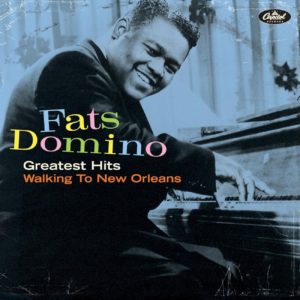 Fats Domino, songs: “The Fat Man” (1950,) “Ain’t That A Shame” & “Blueberry Hill” (1956)
Fats Domino, songs: “The Fat Man” (1950,) “Ain’t That A Shame” & “Blueberry Hill” (1956)
- “The Fat Man,” technically recorded in late 1949, is largely considered the first rock and roll record to sell a million copies.
Johnny Otis, songs: “Double Crossing Blues,” “Mistrustin’ Blues,” & “Cupid’s Boogie” (1950,) and “Willie and the Hand Jive” (1958)
- Otis also discovered many other successful artists including “Etta James, Johnny Ace, Little Willie John and Jackie Wilson.
Nat King Cole, songs: “Unforgettable” (1951,) “Pretend” (1953,) “Smile” (1954,) “A Blossom Fell” and “Darling, Je Vous Aime Beaucoup” (1955) and “When I Fall in Love” (1956)
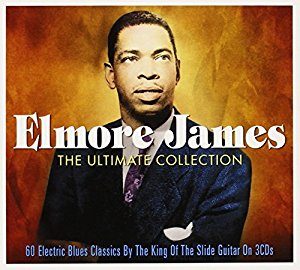 Elmore James, songs: “Dust My Broom” (1951,) “I Believe” (1953,) “Standing at the Crossroads” (1954,) “Dust My Blues” (1955) and “It Hurts Me Too” (1959)
Elmore James, songs: “Dust My Broom” (1951,) “I Believe” (1953,) “Standing at the Crossroads” (1954,) “Dust My Blues” (1955) and “It Hurts Me Too” (1959)
Ike Turner’s Kings of Rhythm / Jackie Brenston & His Delta Cats, song: “Rocket 88” (1951)
- “Rocket 88” was originally credited to Jackie Brenston & His Delta Cats and considered by many to be the first rock and roll record (still hotly debated by rock and roll historians) but, Ike Turner, who plays piano on the track, later disputed the matter, saying that it was he and his band with Jackie Brenston sitting in on vocals, and he won.
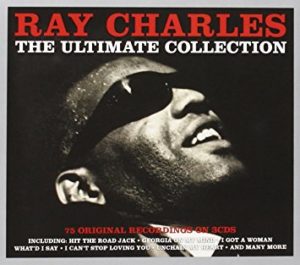 Ray Charles, songs: “Baby, Let Me Hold Your Hand” (1951,) “Kissa Me Baby” (1952,) “Mess Around” (1953,) “I Got a Woman” (1954,) “Hallelujah I Love Her So” (1955,) “What’d I Say” (1959)
Ray Charles, songs: “Baby, Let Me Hold Your Hand” (1951,) “Kissa Me Baby” (1952,) “Mess Around” (1953,) “I Got a Woman” (1954,) “Hallelujah I Love Her So” (1955,) “What’d I Say” (1959)
Howlin Wolf, songs: “How Many More Years” and “Monin’ at Midnight” (1951,) “Who Will Be Next” (1955) and “Smokestack Lightning” and “I Asked For Water” (1956)
Jonnie Ray, songs: “Cry” and “The Little White Cloud That Cried” (1951,) “Walkin’ My Baby Back Home” (1952) and “Just Walkin’ in the Rain” (1956)
- A pioneering figure in the development of rock and roll, Ray’s music was heavily influenced by both jazz and blues and seemed to alternate between R&B and classic pop.
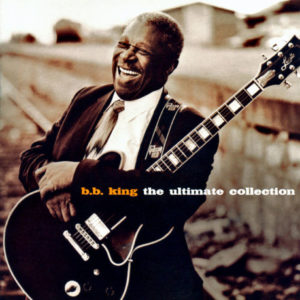 B.B. King, songs: “3 O’Clock Blues” (1952,) “Every Day I Have the Blues” & (1955,) “Sweet Little Angel” & “Rock Me Baby” (1956)
B.B. King, songs: “3 O’Clock Blues” (1952,) “Every Day I Have the Blues” & (1955,) “Sweet Little Angel” & “Rock Me Baby” (1956)
- King’s career began in 1949 with Bullet Records but his first number one single on the R&B chart was “3 O’Clock Blues.”
Lloyd Price, songs: “Lawdy Miss Clawdy” (1952,) “Stagger Lee” (1958,) “Personality” and “I’m Gonna Get Married” (1959)
Big Mama Thornton, song: “Hound Dog” (1952)
- You’ll eventually notice that this song is on here twice. Elvis had the most popular version of it but, the original is arguably unbeatable.
Clarence “Frogman” Henry, song: “Ain’t Got No Home” (1952)
- The R&B; song was featured in the movies “Diner,” “The Lost Boys” & “Casino”
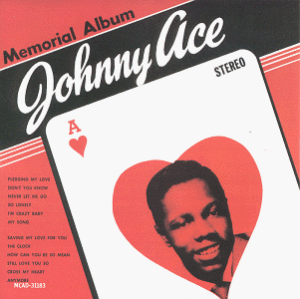 Johnny Ace, songs: “My Song” (1952,) and “Pledging My Love” (1955)
Johnny Ace, songs: “My Song” (1952,) and “Pledging My Love” (1955)
- “Pledging My Love” was a posthumous hit because Johnny had died weeks earlier due to a game of Russian Roulette gone wrong.
Junior Parker, song: “Mystery Train” (1953)
The Drifters, song: “Money Honey” (1953)
Muddy Waters, songs: “Hoochie Coochie Man,” “Just Make Love To Me” and “I’m Ready” (1954,) “Mannish Boy” (1955,) “Trouble No More,” “Forty Days and Forty Nights,” and “Got My Mojo Working” (1956)
The Spaniels, song: “Goodnite, Sweetheart, Goodnite” (1954)
Bill Haley & His Comets, songs: “Rock Around the Clock” and “Shake Rattle and Roll” (1954) and “See You Later, Alligator” (1956)
The Penguins, song: “Earth Angel” (1954)
Frank Sinatra, songs: “Young at Heart” (1954,) “Love and Marriage” (1955,) “I’ve Got You Under My Skin” (1956,) “All the Way” and the cover of the Rodgers and Hart show tune from the musical Babes In Arms “The Lady is a Tramp” (1957,) “Come Fly with Me” (1958,) and “Cheek to Cheek” (1959)
Dinah Washington, songs: “Teach Me Tonight” (1954,) “Unforgettable” & perhaps most importantly, her Grammy winning cover of “What a Diff’rence a Day Makes” (1959)
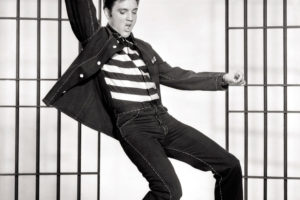 Elvis Presley, songs: “That’s All Right” (1954,) “I Forgot to Remember to Forget “ (1955,) “Heartbreak Hotel,” “Blue Suede Shoes,” “I Want You, I Need You, I Love You,” “Don’t Be Cruel,” “Hound Dog” and “Love Me Tender” (1956,) “Too Much,” “All Shook Up,” “(Let Me Be Your) Teddy Bear” and “Jailhouse Rock” (1957,) “Don’t,” “Wear My Ring Around Your Neck” and “Hard Headed Woman” (1958) and “A Fool Such as I” (1959)
Elvis Presley, songs: “That’s All Right” (1954,) “I Forgot to Remember to Forget “ (1955,) “Heartbreak Hotel,” “Blue Suede Shoes,” “I Want You, I Need You, I Love You,” “Don’t Be Cruel,” “Hound Dog” and “Love Me Tender” (1956,) “Too Much,” “All Shook Up,” “(Let Me Be Your) Teddy Bear” and “Jailhouse Rock” (1957,) “Don’t,” “Wear My Ring Around Your Neck” and “Hard Headed Woman” (1958) and “A Fool Such as I” (1959)
- The King was told he would never make it as a singer and became one of the most significant cultural icons of the 20th century.
Sonny Boy Williamson, song: “Don’t Start Me Talkin’” (1955)
- Williamson had blues heavyweights Willie Dixon on bass and Muddy Waters on guitar for this song.
The Platters, songs: “Only You” and “The Great Pretender” (1955)
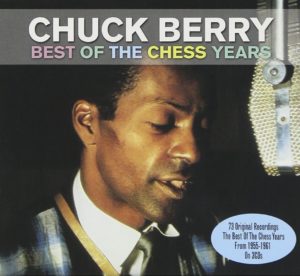 Chuck Berry, songs: “Maybellene” (1955,) “Roll Over Beethoven” (1956,) “Rock and Roll Music” and “School Days” (1957,) “Johnny B. Goode” and “Sweet Little Sixteen” (1958)
Chuck Berry, songs: “Maybellene” (1955,) “Roll Over Beethoven” (1956,) “Rock and Roll Music” and “School Days” (1957,) “Johnny B. Goode” and “Sweet Little Sixteen” (1958)
- Berry is considered another rock and roll pioneer, having refined R&B into the major elements that distinguish rock and roll;
- His guitar solos and showmanship influenced the future of rock and roll for generations that haven’t even been born yet;
- “Maybellene” was an adaptation of a traditional country fiddle tune called “Ida Red” that was made famous in 1938 by Bob Willis and his Texas Playboys.
Jimmy Reed, songs: “You Don’t Have to Go” (1955,) “Ain’t That Lovin’ You Baby” and “You’ve Got Me Dizzy” (1956,) “Little Rain” & “Honest I Do” (1957,) “I’m Gonna Get My Baby” (1958)
- Reed influenced many other musical acts including The Rolling Stones, Grateful Dead, The Animals, Neil Young, The Steve Miller Band and Elvis Presley.
Little Willie John, songs: “All Around the World” (1955) and “Need Your Love So Bad” and “Fever” (1956)
- “Fever” has been covered by many artists including Peggy Lee, Madonna, Beyonce, George Clinton and The Doors.
Smiley Lewis, song: “I Hear You Knocking” (1955)
Bo Diddley, songs: “I’m a Man,” “Bo Diddley” and “Sixteen Tons” (1955,) “Who Do You Love?” and “Pretty Thing” (1956) and “Say Man” (1959)
- Diddley was an R&B singer, guitarist, songwriter and producer who played a key role in the transition from the blues to rock and roll;
- He influenced artists such as Elvis Presley, Buddy Holly, the Beatles, the Rolling Stones, Eric Clapton, the Who, Jimi Hendrix and The Clash.
Julie London, song: “Cry Me a River” (1955)
The Cadillacs, songs: “Speedoo” (1955) and “Peek-A-Boo” (1958)
Little Richard, songs: “Tutti Frutti” (1955,) “Long Tall Sally” and “Rip It Up” (1956,) “Lucille,” Jenny, Jenny,” and “Keep A-Knockin’” (1957,) “Good Golly, Miss Molly” (1958,) and “Whole Lotta Shakin’” (1959.)
- Probably not even necessary to say this but, Little Richard was a rock and roll pioneer in both performance and music style – even performers like Elton John, Cee Lo Green and rockers like Kiss and Alice Cooper owe him some gratitude.
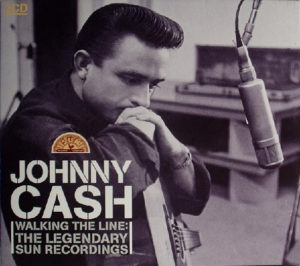 Johnny Cash, songs: “Hey Porter,” “Cry! Cry! Cry!,” “So Doggone Lonesome” and “Folsom Prison Blues” (1955,) “I Walk the Line,” “Get Rhythm” and “There You Go” (1956,) “Next in Line,” “Give My Love to Rose” and “Home of the Blues” (1957,) “Ballad of a Teenage Queen,” “Big River,” “Guess Things Happen That Way,” “The Ways of a Woman in Love” and “All Over Again” (1958) and “Don’t Take Your Guns to Town,” “Frankie’s Man, Johnny,” “I Got Stripes” and “Little Drummer Boy” (1959)
Johnny Cash, songs: “Hey Porter,” “Cry! Cry! Cry!,” “So Doggone Lonesome” and “Folsom Prison Blues” (1955,) “I Walk the Line,” “Get Rhythm” and “There You Go” (1956,) “Next in Line,” “Give My Love to Rose” and “Home of the Blues” (1957,) “Ballad of a Teenage Queen,” “Big River,” “Guess Things Happen That Way,” “The Ways of a Woman in Love” and “All Over Again” (1958) and “Don’t Take Your Guns to Town,” “Frankie’s Man, Johnny,” “I Got Stripes” and “Little Drummer Boy” (1959)
The Dells, song: “Oh What a Night” (1956)
Carl Perkins, song: “Blue Suede Shoes” (1956)
- This song, like “Hound Dog” before it, is another original that was also done by Elvis.
Frankie Lymon & the Teenagers, song: “Who Do Fools Fall in Love” (1956)
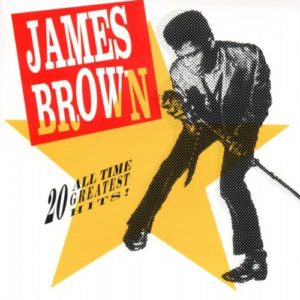 James Brown, songs: “Please, Please, Please” (1956) and “Try Me” (1958)
James Brown, songs: “Please, Please, Please” (1956) and “Try Me” (1958)
- For the record, while I’m only listing two songs in the 1950s, the hardest working man in show business was just getting started.
The Five Satins, song: “In the Still of the Night” (1956)
- The classic song has been covered by the likes of both Boyz II Men and Debbie Gibson;
- It was also featured in Dirty Dancing and The Buddy Holly Story
Shirley & Lee, song: “Let the Good Times Roll” (1956)
Gene Vincent and his Blue Caps, songs: “Be-Bop-A-Lula” and “Bluejean Bop!” (1956,) “Lotta Lovin’” (1957) and “Dance to the Bop” (1958)
Screamin’ Jay Hawkins, song: “I Put a Spell on You” (1956)
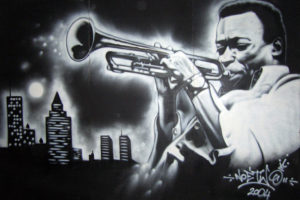 Miles Davis, albums: ’Round About Midnight (1957) and Kind of Blue (1959)
Miles Davis, albums: ’Round About Midnight (1957) and Kind of Blue (1959)
- ’Round About Midnight was greeted with a lukewarm reception upon its release but has since been recognized as a masterpiece of the hard bop genre and one of the greatest jazz albums of all time;
- Kind of Blue is considered by many to be Davis’ greatest album and features the songs “So What,” “All Blues” and the atypical subtle ballad “Blue in Green”)
Johnny Burnette and the Rock and Roll Trio, song: “Train Kept A-Rollin’” (1956)
- This song was originally recorded by jazz and R&B musician Tiny Bradshaw in 1951 but, this cover was a decidedly more guitar riff-driven rendition
Paul Anka, songs: “Diana” (1957,) “It’s Time to Cry” and “(All Of a Sudden) My Heart Sings” (1958)
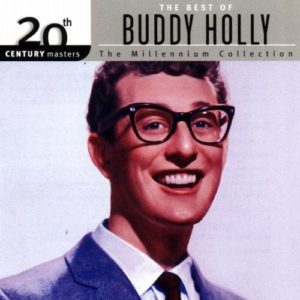 Buddy Holly, songs: “That’ll Be the Day,” Peggy Sue,” “Everyday,” “Oh, boy!” and “Not Fade Away” (1957,) “Maybe Baby,” “Rave On,” “Think It Over,” “Early in the Morning,” “It’s So Easy,” “Real Wild Child” and “Heartbeat” (1958) and “It Doesn’t Matter Anymore” (1959)
Buddy Holly, songs: “That’ll Be the Day,” Peggy Sue,” “Everyday,” “Oh, boy!” and “Not Fade Away” (1957,) “Maybe Baby,” “Rave On,” “Think It Over,” “Early in the Morning,” “It’s So Easy,” “Real Wild Child” and “Heartbeat” (1958) and “It Doesn’t Matter Anymore” (1959)
Elizabeth Cotten, song: “Freight Train” – 1957
- 50 years after she wrote it at the age of 12, Cotten finally got her song out there and had her time in the spotlight;
- it was later covered by country star Chet Atkins and folk legend Joan Baez;
- Cotten was a self-taught, left-handed guitar player who played a right-handed guitar upside down which gave her a unique, signature alternating bass sound that has since become known as “Cotten Picking”
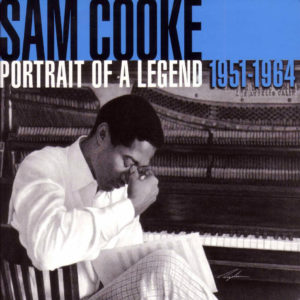 Sam Cooke, songs: “You Send Me” (1957,) “Win Your Love For Me” (1958) and “Love You Most Of All,” “Everybody Likes To Cha Cha Cha,” “There, I’ve Said it Again” and “Only Sixteen” (1959)
Sam Cooke, songs: “You Send Me” (1957,) “Win Your Love For Me” (1958) and “Love You Most Of All,” “Everybody Likes To Cha Cha Cha,” “There, I’ve Said it Again” and “Only Sixteen” (1959)
Eddie Cochran, songs: “Twenty Flight Rock” and “Sittin’ in the Balcony” (1957) and “Summertime Blues” and “C’mon Everybody” (1958)
Huey “Piano” Smith and His Clowns, songs: “Rockin’ Pneumonia and the Boogie Woogie Flu” (1957,) “Don’t You Just Know It (1958) and “Sea Cruise” (1959)
The Teen Kings, song: “Ooby Dooby” (1957)
- While this record peaked at 59 on the Billboard Hot 100, it sold 200,000 copies and introduced us to the sound of Roy Orbison who would explode onto the scene in the 1960’s.
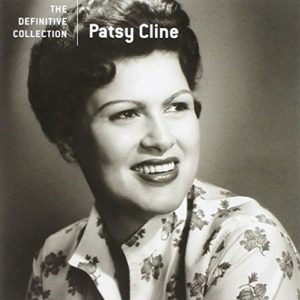 Patsy Cline, song: “Walkin’ After Midnight” (1957)
Patsy Cline, song: “Walkin’ After Midnight” (1957)
- That’s it for the fifties but she resurged in 1961.
The Coasters, song: “Searchin’” (1957,) “Yakety Yak” and “Charlie Brown” (1958) and “Along Came Jones” and “Poison Ivy” (1959)
Dale Hawkins, song: “Susie Q” (1957)
Link Wray, song: “Rumble” (1958)
- Rumble was featured in the movie Pulp Fiction and is one of the earliest recordings to explore distortion and feedback;
- Link Wray was ranked at number 45 of the 100 greatest guitarists of all time by Rolling Stone Magazine;
- Wray is the man who invented the power chord so, just about every modern rock guitarist owes him a thank you and, without him, we would never have gotten punk or heavy rock.
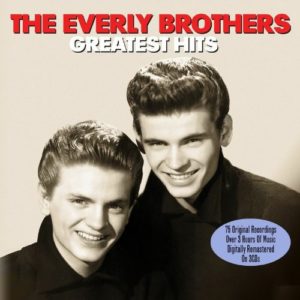 The Everly Brothers, songs: “Bye Bye Love” and “Wake Up Little Susie” (1957,) “All I Have to Do Is Dream,” “Bird Dog” and “Problems” (1958)
The Everly Brothers, songs: “Bye Bye Love” and “Wake Up Little Susie” (1957,) “All I Have to Do Is Dream,” “Bird Dog” and “Problems” (1958)
Jackie Wilson, songs: “Reet Petite” (1957) & “Lonely Teardrops (1958)
The Champs, song: “Tequila” – 1958
- The Champs are a prime example of the one-hit-wonder but they delivered a Latin-tinged instrumental with serious staying power.
Danny & the Juniors, song: “At the Hop” (1958)
Ritchie Valens, songs: “Come On, Let’s Go,” “Donna” and “La Bamba” (1958)
- Valens’ recording career only lasted eight months before he tragically died in the same plane crash as Buddy Holly and the Big Bopper
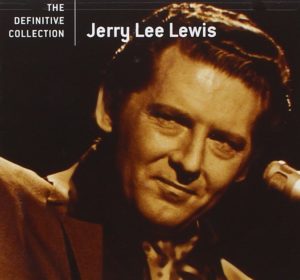 Jerry Lee Lewis, songs: Covers of “Don’t Be Cruel,” “Jambalaya,” “When the Saints Go Marching In” and “Goodnight Irene,” as well as the original “High School Confidential” were all from his first, self-titled album in 1958; Other 1950’s hit singles included “Whole Lot of Shakin’ Going On” and “Great Balls of Fire” (1957,) and “Breathless” (1958)
Jerry Lee Lewis, songs: Covers of “Don’t Be Cruel,” “Jambalaya,” “When the Saints Go Marching In” and “Goodnight Irene,” as well as the original “High School Confidential” were all from his first, self-titled album in 1958; Other 1950’s hit singles included “Whole Lot of Shakin’ Going On” and “Great Balls of Fire” (1957,) and “Breathless” (1958)
The Shirelles, songs: “I Met Him on a Sunday (Ronde-Ronde)” (1958) and their cover of “Dedicated to the One I Love” (1959)
Nina Simone, songs: “I Loves you, Porgy” & “My Baby Just Cares For Me” – 1958
- Not unlike James Brown, the career of Nina Simone was just getting started.
Cliff Richard and The Shadows, song: “Move It” (1958)
- This song is considered the UK’s first authentic rock and roll record.
The Big Bopper, song: “Chantilly Lace” (1958)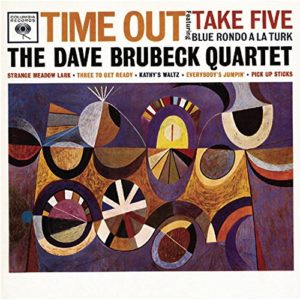
The Dave Brubeck Quartet, album: Time Out (1959)
- This was the first jazz album to sell more than a million copies. It included the songs “Take Five,” “Blue Rondo a la Turk” and “Three to Get Ready.”
The Isley Brothers, song: “Shout” (1959)
Johnny Preston, song: “Running Bear” (1959)
The Flamingos, song: “I Only Have Eyes For You” (1959)
Dion & The Belmonts, song: “A Teenager in Love” (1959)
- This pop group preceded their biggest hit with “I Wonder Why,” No One Knows,” & “Don’t Pitty Me;”
- “A Teenager in Love” was followed up with “Where or When” & “That’s My Desire”
The 1950s came to a tragic end with an event that would later inspire the 1971 smash hit song “American Pie” by Don McLean. The song dubbed the event “the day the music died.” Buddy Holly, who had parted ways with the Crickets toward the end of 1958, had put together a band that consisted of Tommy Allsup, Carl Bunch and Waylon Jennings for his “Winter Dance Party” tour with opening acts Dion & The Belmonts, The Big Bopper, and Ritchie Valens. The long, cold bus rides between gigs had left several of the musicians sick and Holly decided to charter a plane.
Dion DiMucci was offered a seat but declined because he said that the $36 cost was too much because that’s what his parents paid for a month of rent in his childhood apartment. The Big Bopper had the flu so, Waylon Jennings gave up his seat for his sick colleague. Valens and Allsup flipped a coin for the final seat and Valens won.
The plane took off from Mason City Iowa at 12:55 am on February 3, 1959 under conditions of light snow, six miles of visibility and 20-30 mile-per-hour winds. Within minutes, radio contact had been lost. Later that morning, the owner of the charter company took off in another plane to retrace the flight path. He spotted the wreckage only six miles northwest of the airport.
Losing The Big Bopper, Ritchie Valens and Buddy Holly was a tragic end to an excellent decade of music and we’ll never know what music we lost with them. However, we do know some of the music we were blessed with because of who did not wind up on that plane. Dion had not recorded “A Teenager in Love” yet and both he and Waylon Jennings were still meant to give us some excellent music in the decade ahead. In fact, for my money, the sixties were even better than the fifties. But, we’ll save that for a future post . . .
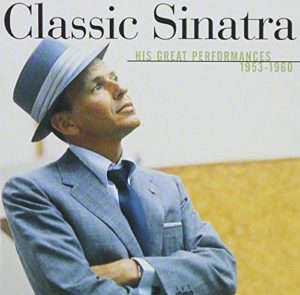
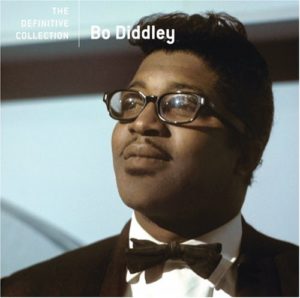
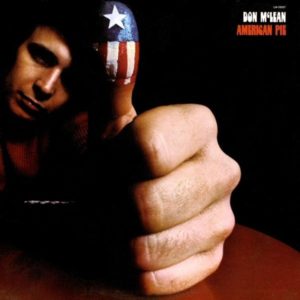

 While I appreciate classical music, and admire some of the great classical composers of the past like
While I appreciate classical music, and admire some of the great classical composers of the past like  Okay, now we can fast forward in time a little bit. But, not too far. The 19th century gave us some great music, too. Francis Scott Key delivered with “
Okay, now we can fast forward in time a little bit. But, not too far. The 19th century gave us some great music, too. Francis Scott Key delivered with “
 While the stock market crashed in 1929, the music scene didn’t. The 1930’s had
While the stock market crashed in 1929, the music scene didn’t. The 1930’s had 